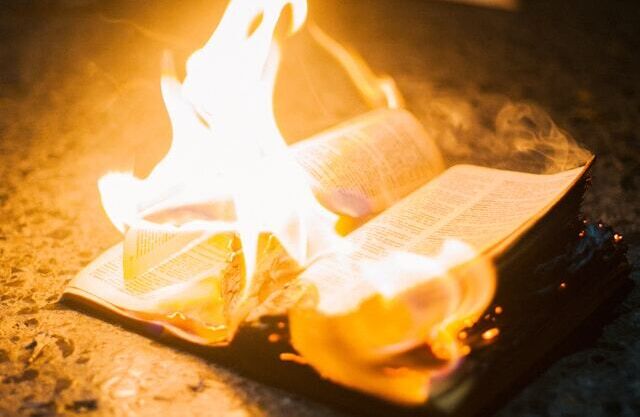Freedom of Speech
Man who attacked Quran burner spared jail

A man who attacked a Quran-burning protester with a knife in central London has been spared prison, triggering widespread outrage and accusations of “two-tier justice” and double standards in policing and sentencing.
Moussa Kadri, 59, confronted activist Hamit Coskun outside the Turkish Consulate in Knightsbridge on 13 February, after Coskun set fire to a Quran while shouting “Islam is religion of terrorism” and other anti-Islamic slurs.
Kadri initially called Coskun an “idiot” and threatened to kill him before returning with a bread knife and slashing at him. Coskun used the burning Quran to defend himself.
Attacker had ‘exemplary character’
Despite the attack being captured on video, Judge Adam Hiddleston handed Kadri a 20-week suspended prison sentence, citing his “exemplary character,” remorse, and low risk of reoffending. Kadri was also ordered to complete 150 hours of unpaid work and 10 days of rehabilitation.
Judge Hiddleston described Kadri as “a loved husband and father… much respected in his work with charity,” but said his use of a knife in public was “wholly unacceptable.” Kadri later told police: “I protect my religion.”
Coskun, who is of Kurdish and Armenian background and describes himself as an atheist, condemned the court's decision as a “disgrace to the rule of law,” telling the Daily Mail: “We are faced with double standards when it comes to dealing with Islamists in the UK. There is a two-tier justice system in place. This situation is causing serious fractures in society.”
He claimed the outcome gave a “morale boost” to extremists and warned it undermines public confidence in justice. “If my attacker had not been Muslim, he would be in prison,” Coskun added.
Two-tier policing of free speech
Coskun was himself convicted in June of a religiously aggravated public order offence and fined £240 for his Quran-burning protest.
Judge John McGarva ruled that his actions were “motivated at least in part by hatred of Muslims” and were not a reasonable exercise of free speech.
Free speech campaigners and political figures also criticised the ruling.
The Free Speech Union's Toby Young said the suspended sentence sent “a green light to any Muslim who wants to enforce an Islamic blasphemy by taking the law into their own hands.”
Shadow Justice Secretary Robert Jenrick has requested an explanation from the Director of Public Prosecutions, questioning why more serious charges were not pursued.
The case has reignited national debate about freedom of expression, religious sensitivities, and whether UK courts apply justice impartially.
Share
